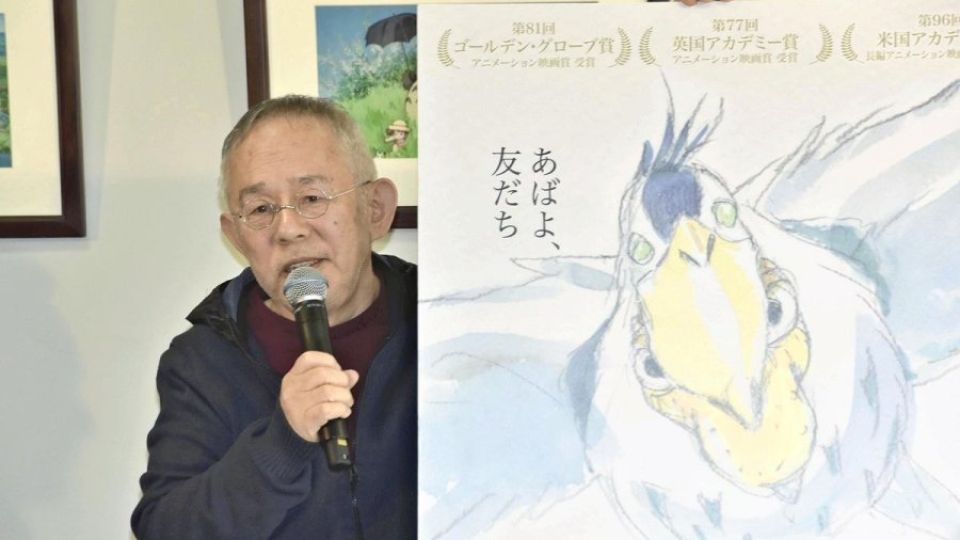March 13, 2024
TOKYO – The triumph of two Japanese films at the 96th Academy Awards showed Japan can compete not only in animated film, which the country is widely recognized as excelling in, but also in visual effects, a stronghold of Hollywood films.
“Kimitachi wa Do Ikiruka” (“The Boy and the Heron”), directed by Hayao Miyazaki, won the award in the Animated Feature Film category, while “Godzilla Minus One,” directed by Takashi Yamazaki, took Best Visual Effects.
“Godzilla Minus One” became the first Asian film to win in the visual effects category, past winners of which include such epics as “Avatar” and “Titanic.” The latest Godzilla film featured heavily in Oscar predictions by local media and stayed strong to clinch the sought-after award.
Since the film’s Japan release in November last year, it has drawn attention for its story, which seems to resonate with the current period of nuclear crisis. Godzilla is supposed to have been born as the result of a hydrogen bomb experiment.
“It’s a story of pacifying Godzilla, who is a symbol of war and nuclear weapons, rather than killing him,” Yamazaki, 59, said at a press conference after the awards ceremony. “I think the film’s success partly comes from the fact that the world wants an end to [wars and nuclear issues], one way or the other.”
Godzilla as rendered by computer graphics is stunning on screen, and characters confront the monster with wisdom and solidarity. Their story seems to have captivated the hearts of audiences across borders. Global box office revenue has surpassed ¥16 billion. The film has also been praised for how it achieved a technical mastery in visual expression on par with much more well-funded productions. Though costs have not been made public, some sources say they were just one-tenth of an average Hollywood film.
Miyazaki, 83, took the award in the animated feature film category for the second time. “The Boy and the Heron” won its de facto duel with “Spider-Man: Across the Spider-Verse,” which was seen as a strong contender. Miyazaki’s film had lost to “Spider-Man” in the Annie Awards, which hands out prestigious accolades for the animated film industry, but he turned the tables at the Academy Awards, whose organizers have been increasing diversity among voting members.
Miyazaki is known for having a very distinctive method. He does not write a script but rather creates the story by drawing a storyboard. While elaborate 3D computer-generated animation is becoming mainstream, it took him and his staff seven years to produce “The Boy and the Heron” the old-fashioned way. It seems the film’s hand-drawn allure, which typifies much of Japanese animation, won over viewers.
Toshio Suzuki, producer for “The Boy and the Heron,” held a press conference at Studio Ghibli in Koganei, Tokyo, on Monday, revealing Miyazaki’s response to the award.
“He was truly overjoyed. He was excited,” Suzuki said of Miyazaki’s response when he talked to him over the phone.
In 2013, Miyazaki announced his retirement. Apparently, he later revealed to Suzuki his intention to make the latest work. “It’s embarrassing, but I want to make one more film,” he said. He then took seven years to complete the film.
“He was more worried than ever about how this film would be received by people,” Suzuki said.
“[‘The Boy and the Heron’] lost to ‘Spider-Man’ at the Annie Awards, whose voters mostly come from North America, but it showed its strength at the Academy Awards, where there is an increasing number of voters from outside North America,” said Yuki Saruwatari, a film journalist based in Los Angeles. The film “was also helped by its newsworthiness, since it will likely be the last work by Miyazaki.”
As for “Godzilla Minus One,” she said, “‘The production team produced a high-quality work on par with Hollywood with a smaller staff and a budget that was an order of magnitude lower.”

